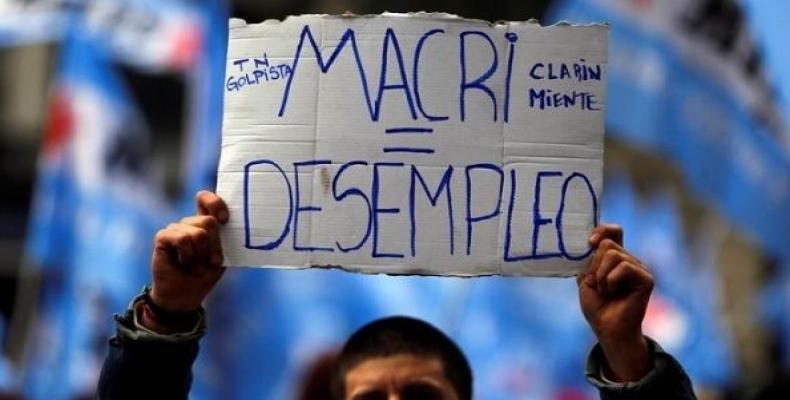Buenos Aires, December 21 (RHC)-- As international investors pull out of high-risk Argentina, the government's plan to finance billions in public works with investor cash has become untenable.
Argentina’s administration under President Mauricio Macri announced its intention to take over 40 infrastructure projects around the country due to lack of international investors scared to do business with South America’s third-largest economy that fell into recession months ago and for which investor riskiness ratings have skyrocketed.
The treasury department head, Nicolas Dujovne, told reporters that the Portezuelo del Viento dam in Mendoza, announced in 2016, will not be carried out under the Public-Private Participation (PPP) program.
Macri had intended to finance some 40 infrastructure projects in the energy, mining, transport, communications, technology, water and sanitation, housing, health, justice and education sectors that amounted to more than $21 billion under the PPP umbrella.
However, international investors who would essentially finance the public-private fund were immediately scared away when Argentina registered a poor showing on the J.P. Morgan Emerging Markets Bonds Index (EMBI) last Friday, drying up resources for the much-needed public works projects.
This rating of 787 is reported as Argentina’s worst EMBI since Macri took office in late 2015. Macri's 2019 budget cuts culture and education spending by 23 percent, housing and urban development by 48 percent, health care by 8, and water treatment and sewerage projects by 20 percent.
Between September and October alone, 20,800 state workers were laid off in austerity measures to feed the country’s $56.3 billion International Monetary Fund (IMF) loan negotiated since June.
Government PPP projects that have already been contracted, such as 2,500 km of highway backed by $6 billion, will continue. "For those who have not yet been bid, there will be changes in how PPP" is managed, a high-ranking transportation official told local media.
Dujovne told the press: "In light of the macroeconomic variables of Argentina there was a change regarding the financing of certain construction projects. "We have decided to move the financing of the project from the PPP system ... to other financing that will be made up of funds from the treasury, bilateral or multilateral. This will allow us to have a substantially lower cost at this time,” Dujovne told the media.
A Casa Rosada source was more blunt: "With this high-risk index, credit was very expensive and the projects became impossible."
PPP programs were put in place in the 1990s around the world and rely on private investment for state projects. International investors, already scared by the country’s economy contracting by six percent in November, are refusing to buy Argentine debt (bonds) that come along with a 60 percent interest rate, an exorbitant rate for a right-wing government that in three years has already accumulated $153.619 billion in debt, 83.4 percent from previous bonds.
"There are no financiers willing to lend to the government," explained the UMET economics professor and former Undersecretary of Finance Facundo Bocco, pointing out the country’s current recession and high level of indebtedness.
As the EMBI rose, Argentina's peso fell, 1.92 points to 39 to the U.S. dollar.
Investors abandon Argentina over skyrocketing risk


